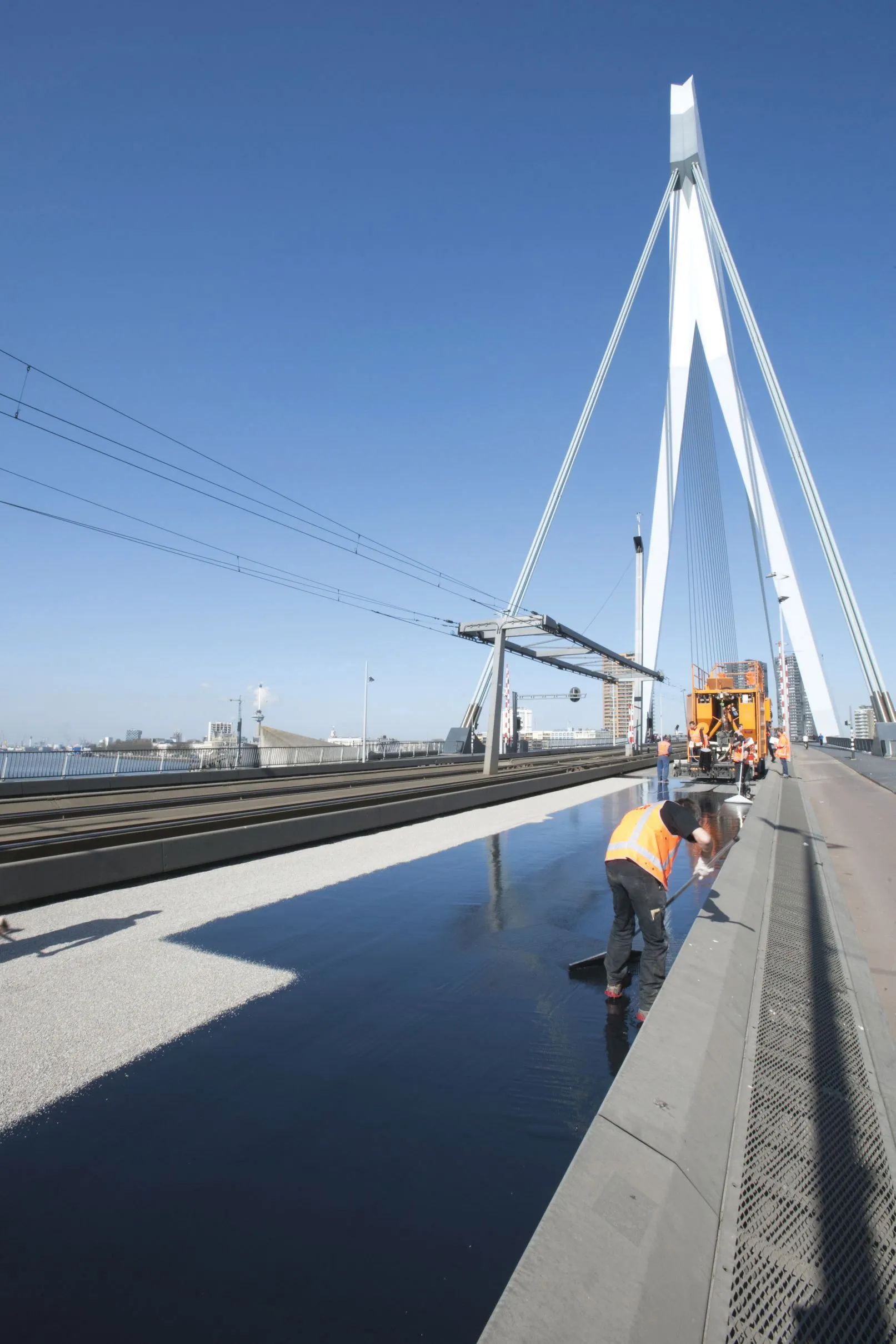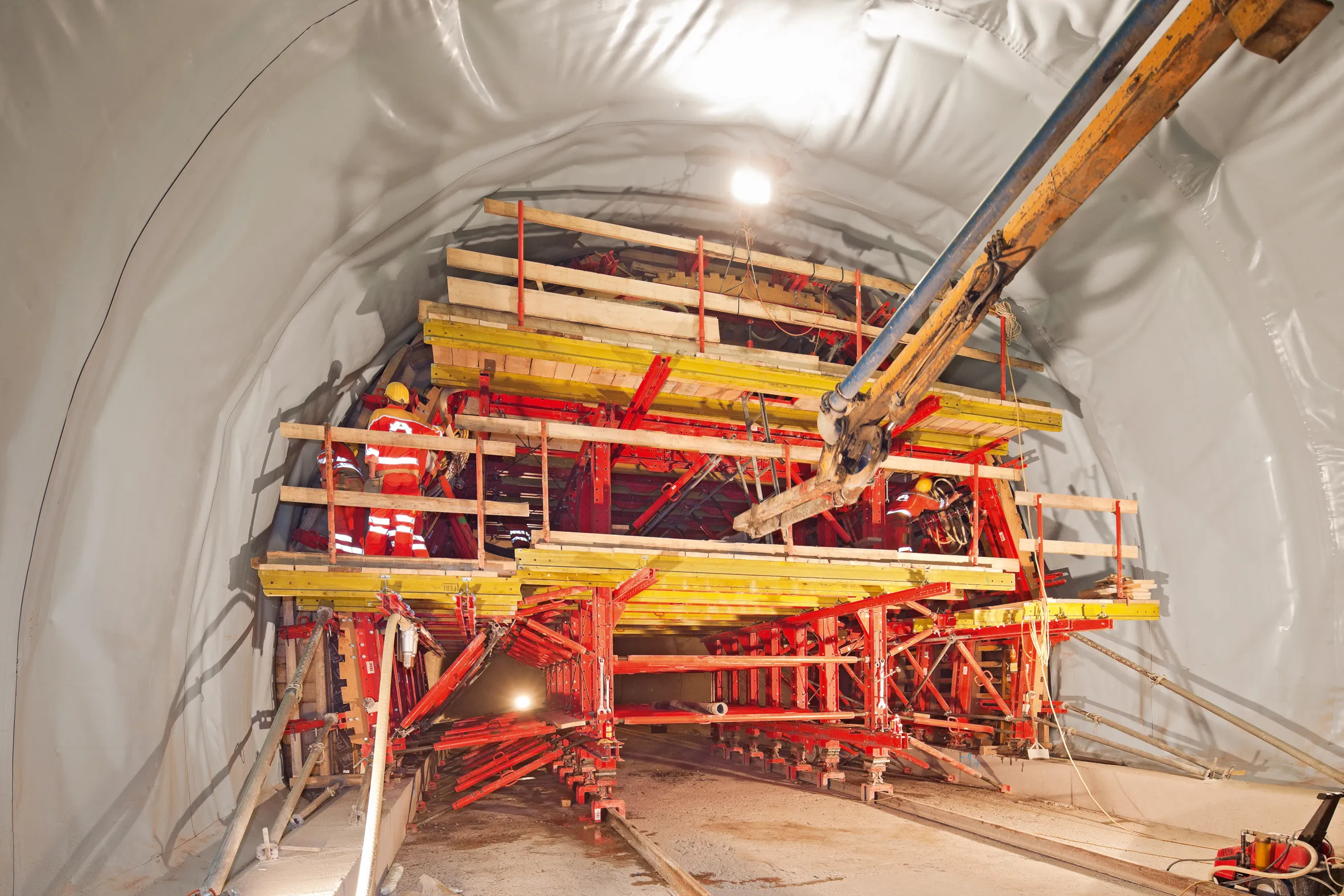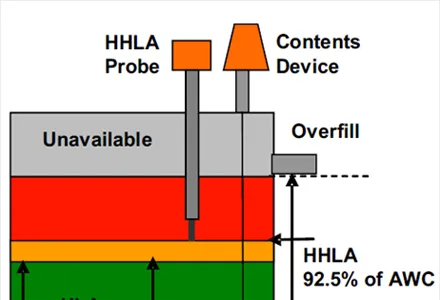A new wearing course applied by Bolidt on the entire eastern section of the Erasmus Bridge in Rotterdam is helping improve the surface for road users. The bridge forms an important link in the centre of the city of Rotterdam and using its equipment Bolidt was able to apply 3,000m2 of new wearing course on Erasmus Bridge in 4 hours. The Rotterdam authorities commissioned Bolidt again after the previous surface the firm applied, its Bridgedeck Up product, lasted over a decade. This time the work was carried o
February 6, 2012
Read time: 2 mins

A new wearing course applied by 2291 Bolidt on the entire eastern section of the Erasmus Bridge in Rotterdam is helping improve the surface for road users. The bridge forms an important link in the centre of the city of Rotterdam and using its equipment Bolidt was able to apply 3,000m2 of new wearing course on Erasmus Bridge in 4 hours. The Rotterdam authorities commissioned Bolidt again after the previous surface the firm applied, its Bridgedeck Up product, lasted over a decade. This time the work was carried out using a machine developed by Bolidt, speeding installation.
Although the previous wearing course was still intact, the decision to replace it was made as part of a maintenance operation. Over one weekend, the entire eastern section of the bridge was resurfaced with a new wearing course and lining. The work was carried out in less than 36 hours due to the equipment used and this high productivity was of key importance as Rotterdam has a heavy traffic load and a prolonged closure would have resulted in serious congestion.
The Bolimix machine was developed by Bolidt originally for the application of wearing courses on concrete bases. The Erasmus Bridge has a steel base, which requires a different type of wearing course and Bolidt had to adapt the machine especially for the work. Exchangeable tanks, allowing a short conversion time, were made to achieve this. Where in the past it was necessary to have several days of dry weather, this has now been reduced to approximately 1.5 days. After the wearing course has been applied, rain no longer forms a hindrance.
Although the previous wearing course was still intact, the decision to replace it was made as part of a maintenance operation. Over one weekend, the entire eastern section of the bridge was resurfaced with a new wearing course and lining. The work was carried out in less than 36 hours due to the equipment used and this high productivity was of key importance as Rotterdam has a heavy traffic load and a prolonged closure would have resulted in serious congestion.
The Bolimix machine was developed by Bolidt originally for the application of wearing courses on concrete bases. The Erasmus Bridge has a steel base, which requires a different type of wearing course and Bolidt had to adapt the machine especially for the work. Exchangeable tanks, allowing a short conversion time, were made to achieve this. Where in the past it was necessary to have several days of dry weather, this has now been reduced to approximately 1.5 days. After the wearing course has been applied, rain no longer forms a hindrance.








